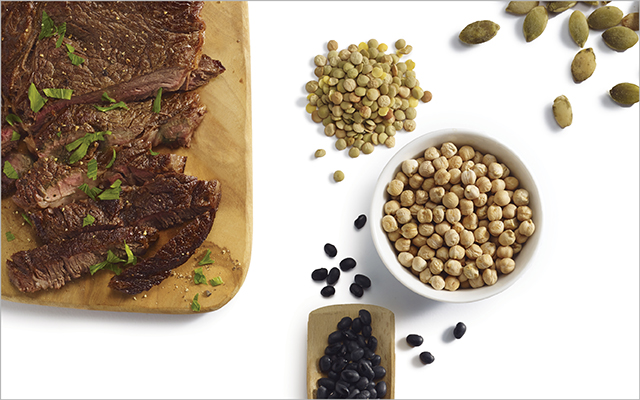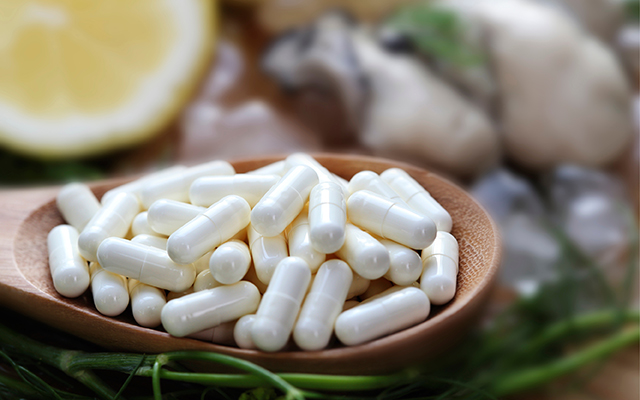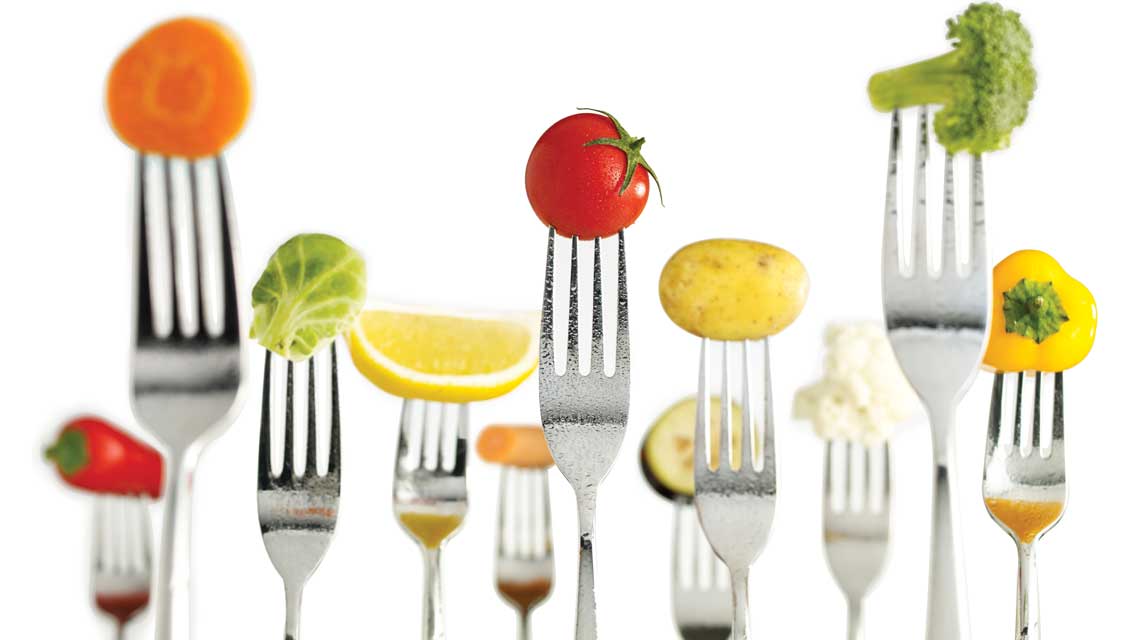1. Supports Gut Health and Digestion
Zinc’s role in healing gut dysfunction is an emerging area of research, with many promising new findings. In a recent animal study at Cornell University, for example, researchers discovered that zinc deficiency alters the microbial population and diversity of the intestine — information that may have implications for a host of conditions affected by the gut’s bacterial profile.
Tammy Russell, MS, RDN, a functional-medicine specialist in Portland, Ore., recommends zinc for clients who have digestive problems, including acid reflux and irritable bowel syndrome. “Gut issues are epidemic in our society,” says Russell, who recommends that anyone diagnosed with gastrointestinal (GI) problems be tested for nutrient deficiencies by a trained nutrition professional.
The overgrowth of bad bacteria in the gut, which is often attributed to poor diet and antibiotics, can reduce the secretion of hydrochloric acid (HCl), which is required for proper digestion. In her practice, Russell has found that GI patients who supplement with 20 to 30 mg of zinc per day can help boost their system’s HCl production.
2. Boosts the Immune-System
Zinc reduces cellular inflammation, protects immune-system lymphocytes (white blood cells), and prevents cellular oxidation. If you’re deficient in zinc, you’re more susceptible to pathogens and infections.
As for whether zinc supplements can ease a cold, research is promising but inconclusive. Try lozenges and syrup, and skip nasal sprays and gels, which can cause loss of smell.
3. Fertility and Pregnancy Support
Researchers don’t know exactly how zinc protects fertility, but there are obvious signs of the mineral’s importance: Men with low sperm counts have lower levels of zinc in their semen than men with higher sperm counts. Zinc can also help boost testosterone levels in otherwise-healthy males, which could lead to better sperm motility, and it seems to protect both eggs and sperm from the effects of oxidative stress and inflammation.
Because zinc protects the immune system, it appears to prevent the prenatal infections that can lead to pregnancy loss or preterm labor. Indeed, research has shown that adequate zinc levels in pregnant women decrease the risk of preterm births by as much as 14 percent, and women who go into preterm labor have been found to have lower concentrations of zinc in their blood than those who carry to term. Zinc is needed during embryogenesis to regulate chromosomal structures and gene expression, and the placenta needs zinc to establish cell regulation in the fetus.
(Also learn how zinc supports a healthy sex drive.)
4. Keeps the Skin Healthy
About 6 percent of your body’s stored zinc can be found in the outer layer of skin (the epidermis) and in the underlying layers (the dermis). Zinc plays a key role in normal skin development and wound healing; in fact, deficiencies are often found in conjunction with skin disorders. In one study, patients with acne, psoriasis, and other skin conditions were found to have reduced zinc concentrations in their dermis and epidermis, despite normal serum zinc values. Research has also demonstrated that dietary zinc is effective in treating inflammatory acne.
5. Supports Mental Health
Zinc deficiencies are increasingly linked to poor mental health. While doctors have observed a correlation between depression and low zinc levels since the 1950s, a recent study published in PLOS ONE showed that almost one-third of all patients with depression, and half of patients with other psychiatric disorders, were zinc deficient. Researchers are currently investigating whether supplementing with zinc can be an adjunct treatment for major depressive disorder (MDD), especially when antidepressant therapies fail.
Researchers have paid particular attention to zinc concentrations in the brain’s hippocampus, which controls mood and memory. Because of its anti-inflammatory and immunity-boosting properties, some believe zinc protects the hippocampus from the negative effects of excessive stress and oxidation.
This was excerpted from “Zinc Essentials” which was published in the December 2016 issue of Experience Life.




This Post Has 0 Comments